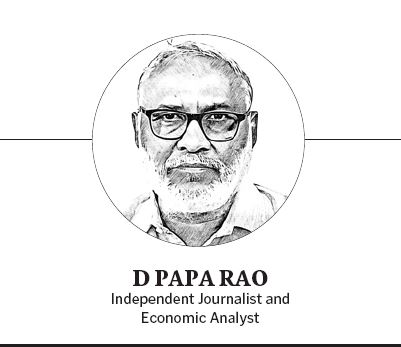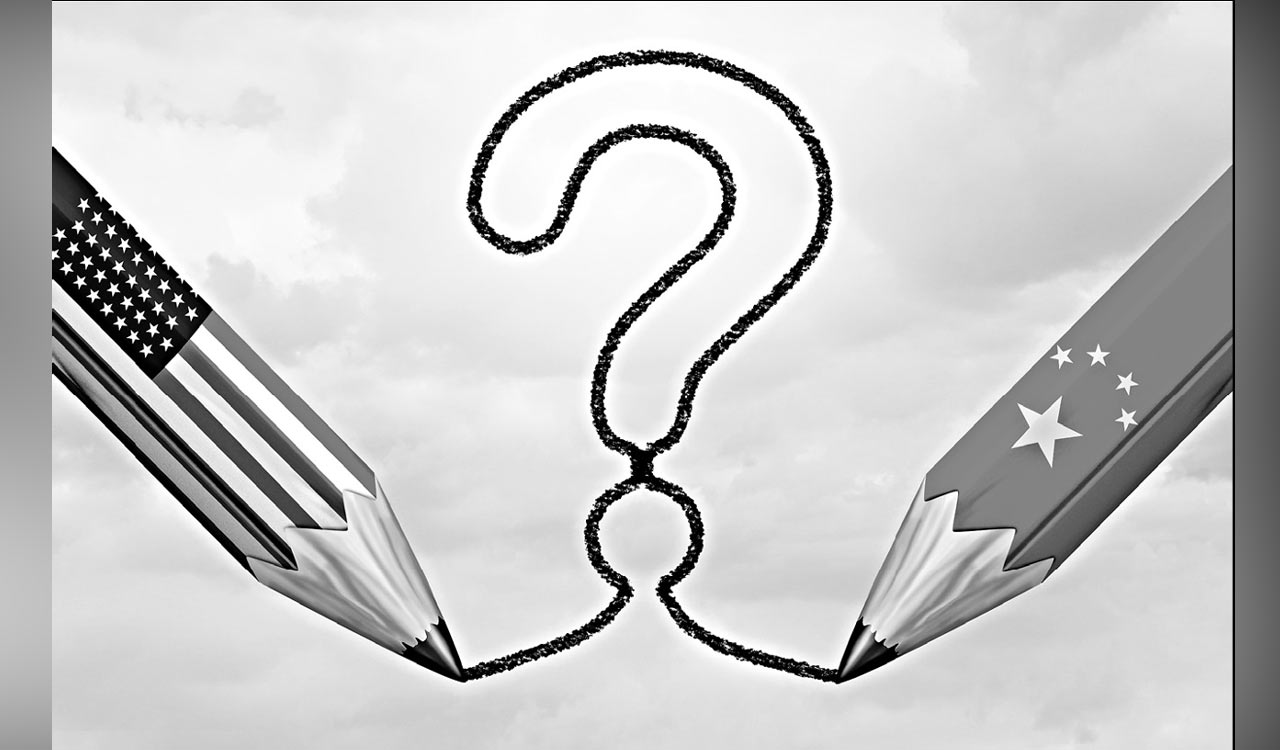The West is keen on a big stimulus and a bigger rate cut in China as it hopes for its own revival
Published Date – 11:30 PM, Fri – 22 September 23

By D Papa Rao
The Western media is fully immersed in the stories of doom and gloom of the Chinese economy. Their contention is that China is in a deflationary mode. Meaning, the demand in the Chinese economy has gone down, and thus the prices of goods and services are falling. Common sense here is that deflation is more dangerous than inflation. Deflation generally means a sort of coma, from which it is very difficult to get out. Such stories about China and its imminent collapse have been around for long but none has come true so far. On the other hand, the Western countries are themselves neck-deep in trouble now.
Inflation Maze
Does the latest story about China carry any substantial weight? Facts and data point otherwise. Because, despite talks of deflation, core inflation (retail inflation minus food and fuel) rose month-on-month in July. While the Chinese retail prices fell 0.3% in July, the core inflation component rose 0.2%. From January 2023 till July, core inflation rose 0.5%. Core inflation, in fact, rose from 0.4% in June to 0.8% in July. Thus, this deflated figure of inflation that is 0.3% for July was derived from the component of pork in the food part of the weightage. Pork prices fell 26% over the last one year. This led to the overall downward change in retail inflation.
However core inflation is what is taken into consideration while assessing the actual level of inflation in a particular country. That is what the Western countries are doing while making decisions about interest rates. They leave aside the components of food and fuel in retail inflation and take into consideration only the core inflation to arrive at a decision as to the level of the actual inflation.
China is being put up for judgment on another count also. That is, it not giving a sufficient level of stimulus or reducing bank rates sufficiently in order to boost the economy, especially when the country’s GDP looks like being around 5%. That too for a country which got habituated to double-digit growth for decades. Herein also, there is an error in the understanding or outright deceit at hand, to fool the people. China, they say should prop up its property market by pumping in big stimulus and by undertaking substantial rate cuts. But China is not doing that. Why?
We can understand the raison d’etre for these actions of China by its previous statements and announced goals. China announced its idea of the ‘new normal’ in 2013. This ‘new normal’ means the end of the era of double-digit GDP growth and the heralding of a new era of around 5% growth. Thus, the present actions of China bode well with its aforementioned ideological positions. Neither Xi Jinping nor his party believes in a finance capital-led real estate-oriented development model. Such a model is what the West is relying on today. That is why the perspectives of China, and the West are diametrically opposite regarding the economy and its trajectories.
China had hyped up the property sector as a part of its economy until recently. But now, the Chinese leadership has intentionally punctured this property bubble in order to change the gears and take a completely different direction and path for their country.
This is a path where the tail does not wag the dog. That is, the finance economy does not dominate the real economy. The Chinese central bank is undertaking small rate cuts now perhaps because these small cuts do not give birth again to a property bubble and would rather be the stimuli for the real economy. That is why what looks like a problem for the West in the matter of China, is a once-in-a-millienial and perhaps first-of-its-kind of a changing of course in the human history for the Chinese leadership.
Sinking West
The West is keen on a big stimulus and a bigger cut in the rates in China, in the hope of its own revival from the bottomless sinking into recessionary conditions. It is because if China takes such a trajectory, then the consequent Chinese infrastructural development programmes (like during the 2008 recessionary conditions) would as well give a big boost to the entire world via exports of various commodities like steel and copper.
The rich Western countries now, unlike in 2008, cannot undertake stimulus programmes and big rate cuts to pull up their economies from the mire of the recession. As such, actions will now engender inflationary conditions as it began to happen post Covid-19 stimulus. These countries are looking towards China desperately for a stimulus, which for them is, in fact, not for China, but for themselves.
Thus, it is not China which is in a desperate situation because of its ‘deflationary’ condition. But, it is the West, the media and the politicians there who are desperate and seeking survival by clinging on to the bootstraps of the Chinese stimulus!






